Air strikes will not defeat Islamic State terrorists alone, experts say
THE plan to bomb ISIS out of existence with air strikes alone will not be enough to destroy it, and experts reveal the challenges we face ahead.
DEFENCE Minister David Johnston was unusually frank last week when he outlined some of the key challenges facing coalition nations trying to bomb Islamic State militants out of existence.
As RAAF Super Hornet strike jets conducted their first successful bombing mission this week Senator Johnston said that insurgents would adapt quickly to air strikes by seeking shelter among the civilian population in the cities and towns of northern Iraq and Syria.
“We’ve started to see adaptation already,” the minister said.
“Adaptation” is an interesting term for what is a tried and true strategy for guerilla armies facing a technologically superior foe. Only fools would remain in the open with the world’s most advanced warplanes roaming unchallenged overhead. Whatever else they are, the jihadist thugs are not fools.
IS TEEN BRIDES: We made a huge mistake
SUPER CALIPHATE: Al-Qaeda and ISIS could unite
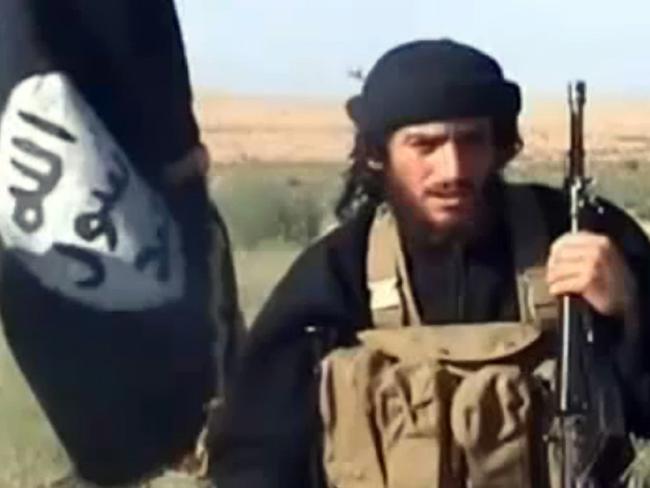
After more than 2000 coalition air strikes they are mingling in with the civilian population and goading the US and its allies to strike in the towns and cities where the terrorists are happy to use women and children as human shields. Civilian casualties are only a matter of concern for civilised nations that have signed the Geneva Conventions not for brutal fanatics operating outside all civilised boundaries.
Chairman of the US Joint Chiefs of Staff, General Martin Dempsey, admitted that even tracking the militants presented a major challenge.
“IS fighters are a learning enemy and they know how to manoeuvre and how to use populations and concealment,” General Dempsey said.
“They’re becoming more savvy with the use of electronic devices,” he said.

As his generals began to question the air war strategy United States President Barack Obama continued to insist that air strikes could degrade the insurgency to the point where Iraqi government forces and Syrian rebels could move in and mop up what’s left.
Some Iraqi special-forces units will be trained by Australians and other western experts, but just how long it will take to get them to a standard where they can defeat the insurgents is anyone’s guess.
Defence Chief Mark Binskin will travel to the US this week to meet other coalition chiefs to establish a training timetable.
Once trained the question then becomes one of willingness. All indications are that members of the Shiite dominated Iraqi Security Forces are unlikely to be keen to sacrifice themselves to defend the Sunni homeland in the north.

Meanwhile Prime Minister Tony Abbott has left the door open for future ground operations by Australian troops as American military chiefs began the hard sell for a ground war could to defeat the brutal jihadists.
“We’ll be in a better position to judge what might be desirable down the track once we’re in there,” Mr Abbott said.
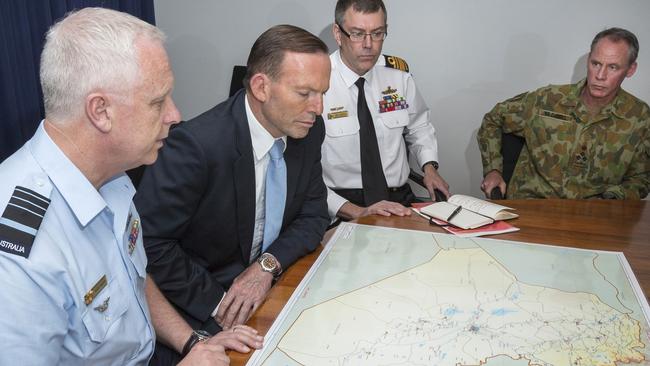
This reflects the growing push in Washington for the President to authorise ground operations to defeat the insurgents. Bearing in mind that 300,000 coalition troops couldn’t do the job in 2003 we are talking about a very large commitment of at least 500,000 soldiers.
Critics have labelled the latest US military venture in the Middle East mission as “uncertain” arguing that it had unclear objectives, an unknown timetable and unreliable allies.
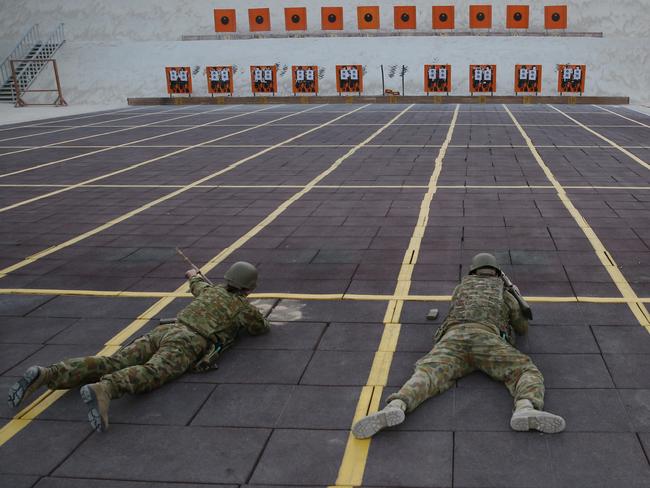
Former army officer and strategic analyst at the Australian National University John Blaxland described the latest western intervention into a Middle Eastern quagmire as “muddle headed”.
Dr Blaxland said managing the US alliance was a key factor for Australia, but he did not buy the argument that action in the Middle East would make Australia safer.
“We have responded to three people dying on YouTube after ignoring the deaths of 200,000 people in Syria. I am afraid we have lost the information war already,” Dr Blaxland said.
“We are going down a path that is in no one’s interest and we are getting ourselves into a deep, dark hole.”

Dr Blaxland said the US and its allies were displaying a breathtaking lack of understanding of the history of Iraq and Syria and as a result they were applying a completely wrong template to the crisis.
He said the only solution on the table — a ground war — would involve a lot more people dying.
“It has eerie similarities to Vietnam,” he said.
During the Vietnam War Australia deployed “advisers” to the conflict years before a battalion of infantry troops arrived in Vung Tau. More than 500 Australians died during that war.
“We have to understand that the government in Baghdad, just like the government in Tehran, doesn’t like us. The solution is to encourage the Turks, Jordanians, Saudis and others in the region to work something out,” Dr Blaxland said.
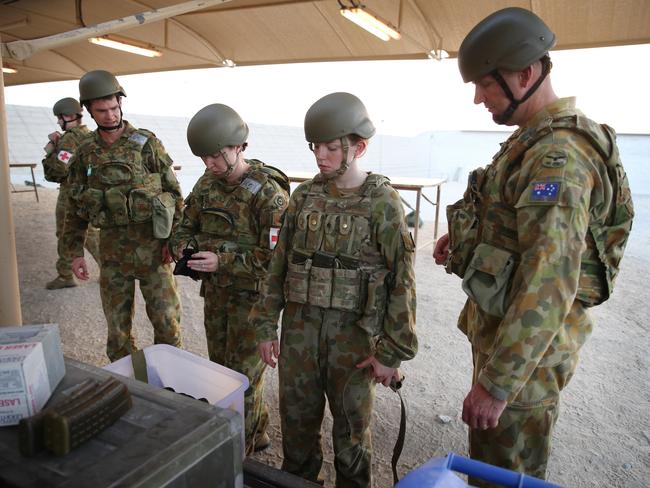
He said the other big problem was that no self-respecting Sunni in northern Iraq would welcome back a Shiite led government.
“No one has a plan to govern the place.”
The American-led military operation has already been moved closer to the ground with the deployment of attack helicopters.
This is a major escalation in the campaign and it raises the stakes for US forces.
It is one thing dropping high explosives from the safety of 5000 metres up in the air, but it is another altogether to fly helicopters close to the ground directly in harm’s way when even a stray AK-47 round could bring one down.
Just one American soldier paraded in an orange jump suit is all it would take for the insurgents to declare victory in the propaganda war.
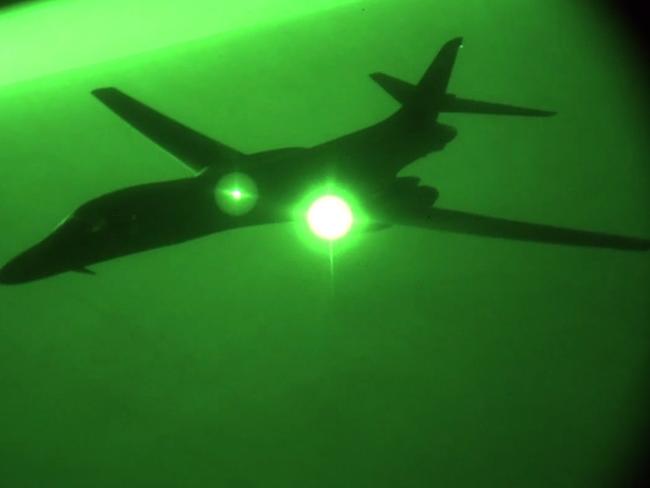
Like many former and serving military officers the former chief of the Australian Army, Peter Leahy, said he would wait and see whether or not the air war combined with trainers would be enough.
He said the three pronged strategy of bolstering Iraqi forces, placing a ring of steel around ISIL and encouraging regional states to get involved was a sound one.
“Saudi Arabia, Jordan and the Gulf States need to take an active and direct role and they need to work against the ideology of groups such as ISIL by calling it for what it is and that is a distortion of Islam,’’ General Leahy said.
Despite the aerial support the Syrian border town of Kobane on the Turkish border was under siege late last week as IS fighters moved through the town street-by-street raising their insidious black flag as they went. Air strikes could not halt the advance and the only way to counter such an offensive is with infantry troops fighting street-by-street and house-to-house.

Mr Abbott has spoken about a campaign that would last for “many months” and the available evidence would suggest that at least 36 months was a realistic time frame.
Air strikes can take out some of the enemy’s hardware and perhaps even its command and control systems, but they can never kill everyone.
Back in 2003 during the Iraq “shock and awe” mission US war planes bombed Saddam Hussein’s regime almost back to the Stone Age. That was followed by a ground invasion by some 300,000 sets of “boots on the ground” and eight years later the Americans left with Iraq immersed in chaos and ripe for the picking by a well organised and well- funded group of thugs.

ANU Professor Hugh White said ISIL was a serious problem, but it was not a problem that could be dealt with in isolation.
He said a large ground offensive was highly unlikely because the US has been unable to convince Iraq’s neighbours, including Turkey, to join in.
“If they think that the US and its allies, including Australia, will do it why would they take them on. This makes it easier for them to sit on their hands.”



